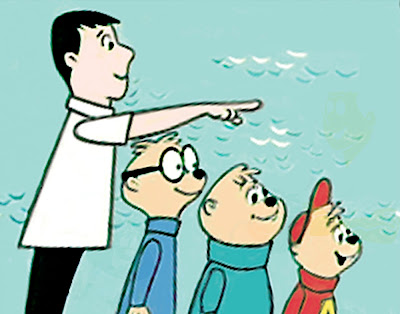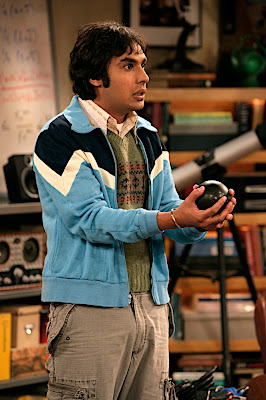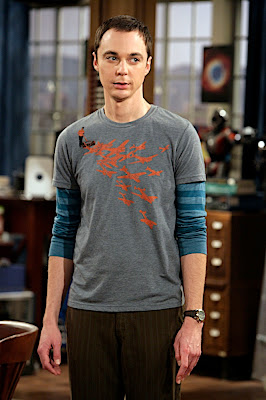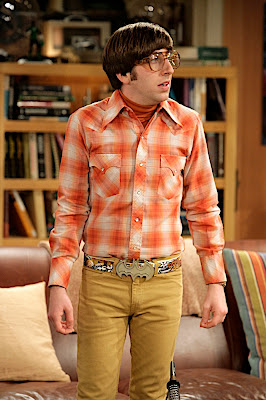New Titles Now Available
I've always had a fondness for the Chipmunks, whether they were touching our heartstrings with their famous rendition of their "Christmas Song," taking part in memorable holiday specials, or entertaining fellow 1980s babies like yours truly who grew up watching Alvin and the Chipmunks in the various evolutions of their Saturday morning cartoon series including their reenactments of popular movies such as in Paramount's recent Star Wreck release.
Having reviewed numerous Chipmunks titles in the past, I was especially thrilled to go back further in history of the Ross Bagdasarian created characters to explore The Very First Alvin Show which was broadcast back in 1961 especially considering that the television premiere had never been previously released in any format including VHS.
Remastering the 35mm film print that aired almost fifty years ago in high definition before transferring it to DVD, Paramount devoted great attention to the soundtrack as well by redistributing the original mono track to a crisp and beautiful stereo balance to accentuate the music we'd come to know and love. Although format-wise, it's very 1960s and the plot is all over the place, two musical highlights include songs I'd never heard before as the Chipmunks put their own spin on "O Sole Mio" in Italy and Alvin tries to use musical "ooh la la" to seduce gorgeous French women.
While the musical creativity is at an all time high, most of the humor comes from the Rocky and Bullwinkle-esque yet pre Pinky and the Brain version of pompous television personality Clyde Crashcup and his long-suffering miniature assistant Leonardo as they "invent" baseball. Moreover, the characters are so unique that the DVD comes with an insert featuring those two alone which made me wonder if there was ever a spinoff or if they'll be used in anything down the road.
Production wise, the DVD release opted to stick with the same mono sound that was utilized for the broadcast in the two bonus episodes of the roughly 74 minute work. And although it's a nice trip back to era of Fresh Prince as Will Smith hosts a celeb-filled, dated look at five decades of music with the Chipmunks in 1991's "The Chipmunks Present Rockin' Through The Decades" that shows Alvin, Simon and Theodore's take on everyone from Elvis to Springsteen, it's a rather weak mixture of music videos and celebrity footage.
However, much like the original Alvin Show, it's worth a peek just to glimpse the far too brief footage of the Chipmunks in puppet form on The Ed Sullivan Show in a nice set-up gag to perform their signature tune. Going right back into the familiar warmth of the '80s style animation with a sweet middle 1985 episode titled "A Chipmunk Reunion," the three assert their independence and disappear in the middle of the night to track down their birth mother to find out when exactly their birthday is and why she came to leave them on Dave's doorstep.
Horrified that something will happen to them, despite the fact that Alvin and the boys asked their female counterparts to look after Dave while they're gone, Dave ventures out into the forest to track down his family in a nice episode that could also serve as an allegory about adoption and a child's desire to know their true origins.
Admittedly the selection of episodes make an unlikely trio as thematically they don't have much holding them together aside from a very loose thread about the history of the series and characters. And although I would've preferred a longer and more in-depth look at the vintage Alvin Show to hear more songs with which I am unfamiliar and view more wacky shenanigans of Clyde Crashcup and the adorable Leonardo, overall I was grateful that so much care, dedication, and love was taken in ensuring the very best presentation of the world's first introduction to the Chipmunks as TV stars.
As Paramount keeps unveiling more quality releases of the Chipmunks line that are sure to appeal to Generation X and now the Baby Boomers as well, I remain hopeful that along with other Paramount titles debuting in tandem with Nickelodeon such as SpongeBob SquarePants, the next generation will latch onto the red, blue, and turquoise singers for many years to come.
Text ©2009, Film Intuition, LLC; All Rights Reserved. http://www.filmintuition.com
Unauthorized Reproduction or Publication Elsewhere is Strictly Prohibited.


















































